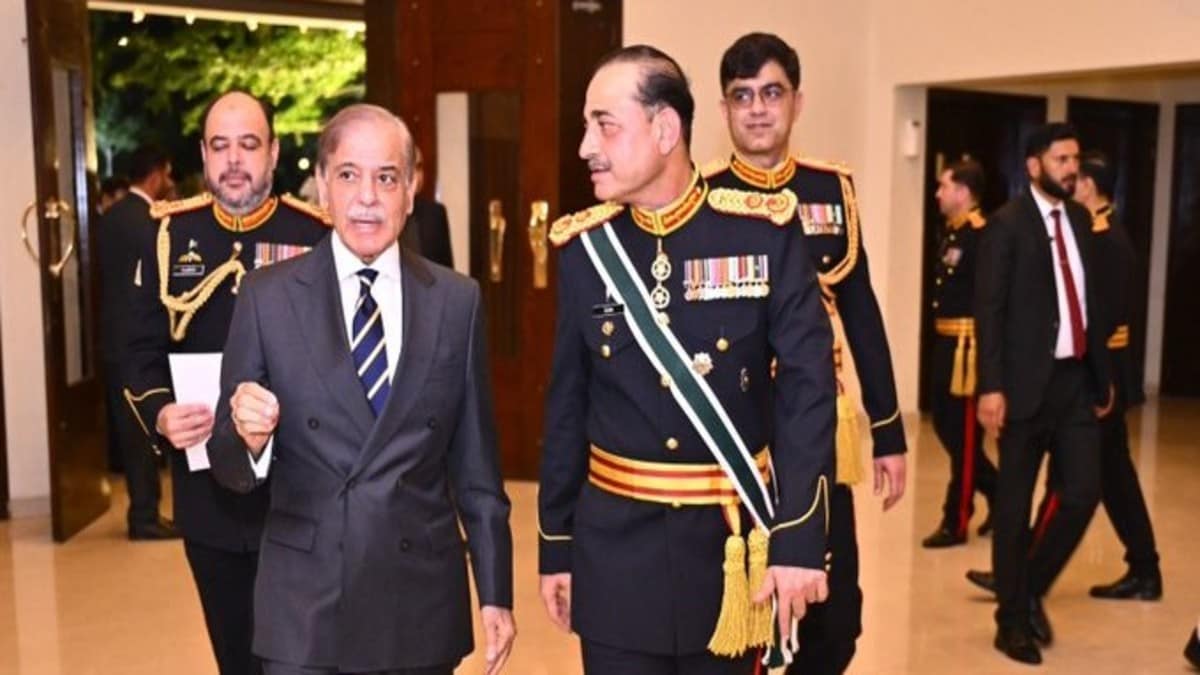

Pakistan's Army Chief, General Asim Munir, has once again ratcheted up tensions with India over the Kashmir issue, reiterating his country's unwavering support for what he termed the "struggle" of the Kashmiri people. Speaking at the Pakistan Naval Academy in Karachi on Saturday, Munir evoked the familiar rhetoric of Kashmir being Pakistan's "jugular vein" and pledged a "decisive response" to any perceived Indian aggression.
Munir's remarks come against a backdrop of already heightened tensions between the two nuclear-armed neighbors. He accused India of initiating military aggression twice without provocation, labeling New Delhi's actions as a "troubling absence of strategic foresight". He also blamed India for destabilizing the region and undermining Pakistan's counter-terrorism efforts, while simultaneously casting Islamabad as a "net regional stabiliser".
In his address, Munir raised the Kashmir issue, stating, "At such a time, we must remember the sacrifices of our Kashmiri brothers who are struggling against India's illegal occupation". He reiterated Pakistan's support for a UN-backed resolution on Kashmir that aligns with the "aspirations of the Kashmiri people". Further intensifying his rhetoric, Munir appeared to justify terrorism in the region by referring to the ongoing unrest in Jammu and Kashmir as a "legitimate freedom movement, as recognized by international law and conventions".
Indian observers have criticized the timing of Munir's statements, noting a pattern of escalatory rhetoric coinciding with or preceding acts of cross-border terrorism. Munir made similar remarks prior to the April 22 Pahalgam terror attack, which resulted in numerous casualties. Following that attack, India reportedly suspended the Indus Waters Treaty and launched Operation Sindoor, targeting terrorist launchpads across the border.
Munir's recent statements echo his address from April 16, where he initially referred to Kashmir as Pakistan's "jugular vein". This earlier declaration was followed by a terror attack in Pahalgam, leading to increased scrutiny of Munir's motives and the potential link between his rhetoric and extremist violence.
Within Pakistan, Munir's hardline stance may be aimed at consolidating his position and rallying support for the military establishment. Some analysts suggest that he is attempting to revive the "two-nation theory" and capitalize on religious sentiments to bolster his image. Others believe that Munir is genuinely frustrated by Pakistan's security challenges and seeks to reassert control over the proxy war in Kashmir.
India's Ministry of External Affairs has previously condemned Munir's remarks, asserting that Kashmir is an integral part of India and that Pakistan's only relationship with the region concerns the "vacation of illegally occupied territories". India has also repeatedly called on Pakistan to take decisive action against terror groups operating from its soil.
As tensions continue to simmer, the international community remains concerned about the potential for further escalation between India and Pakistan. With General Munir's recent remarks, the prospect of a peaceful resolution to the Kashmir dispute appears increasingly distant.